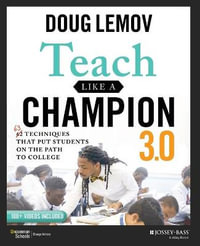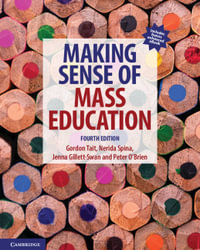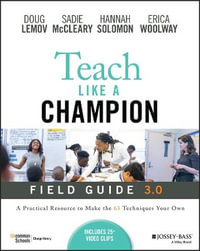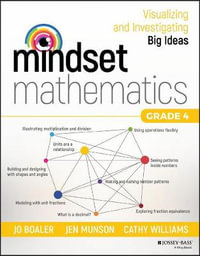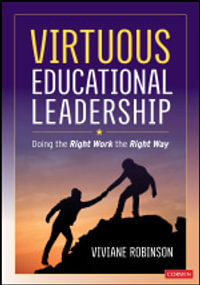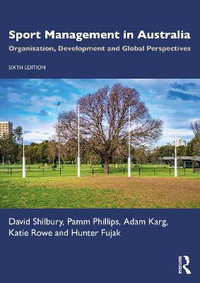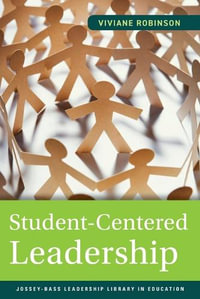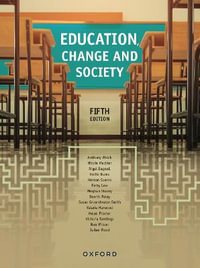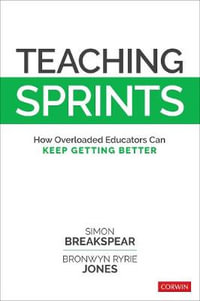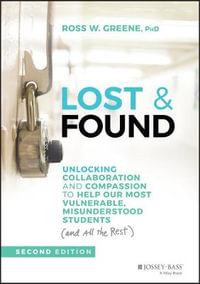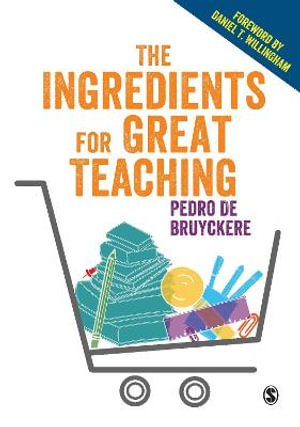
The Ingredients for Great Teaching
Paperback | 14 April 2018 | Edition Number 1
At a Glance
Paperback
Limited Stock Available
RRP $70.99
$70.95
When will this arrive by?
Teaching would be easy if there were clear recipes you could follow every time. The Ingredients for Great Teaching explains why this is impossible and why a one-size-fits-all approach doesn't work.
Instead of recipes, this book examines the basic ingredients of teaching and learning so you can use them wisely in your own classroom in order to become a better and more effective teacher.
Taking an approach that is both evidence-based and practical, author Pedro de Bruyckere explores ten crucial aspects of teaching, the research behind them and why they work like they do, combined with everyday classroom examples describing both good and bad practice.
Key topics include:
- Teacher subject knowledge
- Evaluation and feedback
- The importance of practice
- Metacognition
- Making students think
This is essential reading for teachers everywhere.
Industry Reviews
ISBN: 9781526423399
ISBN-10: 1526423391
Published: 14th April 2018
Format: Paperback
Language: English
Number of Pages: 176
Audience: Professional and Scholarly
Publisher: SAGE PUBLICATIONS LTD
Country of Publication: GB
Edition Number: 1
Dimensions (cm): 23.5 x 16 x 1.5
Weight (kg): 0.39
Shipping
| Standard Shipping | Express Shipping | |
|---|---|---|
| Metro postcodes: | $9.99 | $14.95 |
| Regional postcodes: | $9.99 | $14.95 |
| Rural postcodes: | $9.99 | $14.95 |
How to return your order
At Booktopia, we offer hassle-free returns in accordance with our returns policy. If you wish to return an item, please get in touch with Booktopia Customer Care.
Additional postage charges may be applicable.
Defective items
If there is a problem with any of the items received for your order then the Booktopia Customer Care team is ready to assist you.
For more info please visit our Help Centre.


